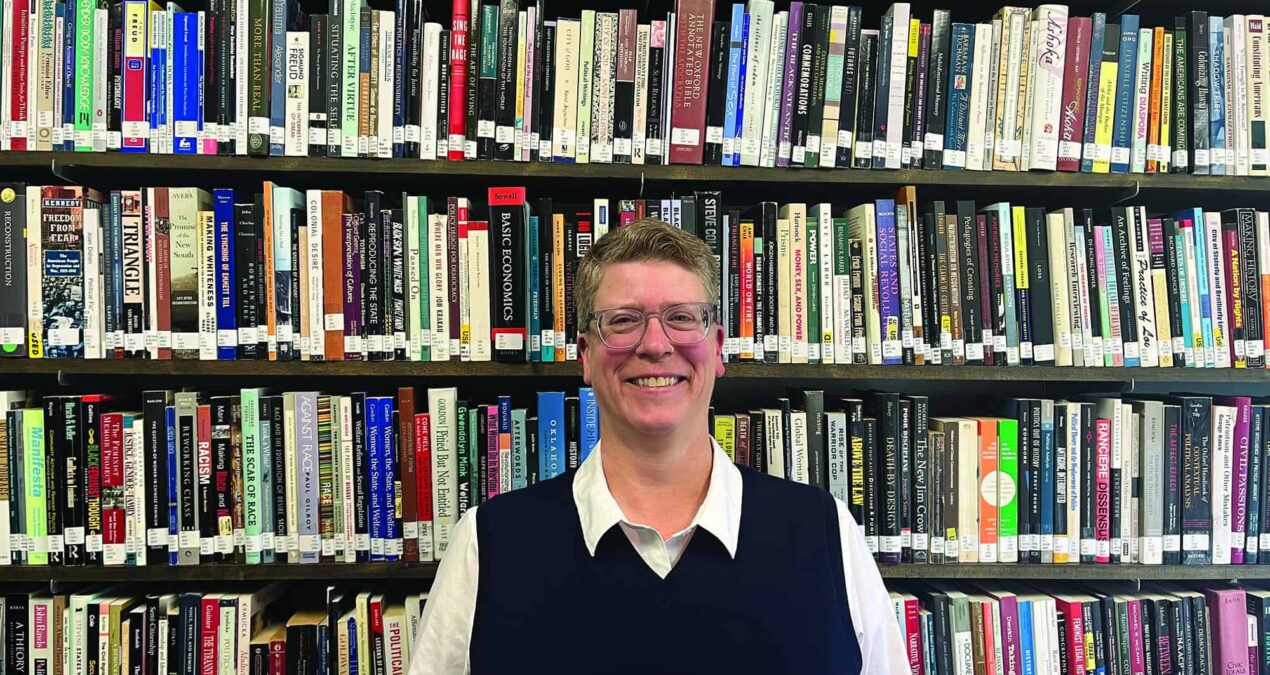Alexandra Rumford & Riley Rees, Specials to The Denisonian–
Dr. Heather Pool, an associate professor of Politics & Public Affairs, is dedicated to challenging students’ preconceived notions of the world. Currently, she is teaching Intro to Theorizing about Political Life and Black Political Thought, as well as a senior seminar. Her goal is to help students figure out what they believe and the reasons behind their thought processes, transcending traditional learning.
A key to her teaching philosophy is giving students the space and opportunity within class to reflect and critically think.
“Dr. Pool’s teaching style is really involved and she efficiently explains the readings and answers questions in a clear manner,” said Roger Gaillard ‘27.
Pool’s favorite parts of education are “Independence, flexibility, and making things hopefully better,” as well as her “Awesome” students and being able to see their success post-grad.
Teaching, in her opinion, is an incredibly optimistic career, and she views it as her responsibility to “ask questions that make the world a better place,” or at least challenge the status quo.
Pool likes how teaching is a self-guided and educational process for both the students and the teacher. She had a circuitous route to teaching; first getting a bachelor’s degree in liberal arts at St. John’s College. Before getting her graduate degrees, she found herself working several different jobs: landscaping, truck driving, serving in the U.S. Air National Guard, and even working under Martha Stewart. She got her Masters and PhD from the University of Washington-Seattle in Political Science.
Despite originally beginning a program in women’s studies, she realized the importance of politics post-9/11. Politics, for her, is an all-encompassing container that influences society in countless unseen ways.
In 2021, she released her first book, “Political Mourning: Identity and Responsibility in the Wake of Tragedy.” The book stems from her PhD dissertation, a nine-year long “labor of love” which analyzes four instances where everyday people die and its political ramifications—she specifically focuses on how these events lead us to think about identity categories and why we value some lives over others.
Pool expands her interest in human thought and cultural identity through traveling. She has traveled to 48 of the 50 states, been to Canada, England, and Panama, and plans to go to Scotland this summer. Last year, she attended an archaeological field school in Ireland to further her studies on ancient
humans. When asked if she had any advice or final thoughts, she stated that politics matters. It’s important to know what you value, not just politically but morally. More importantly, active participation in politics and government are crucial to creating the change we might want to see in the world.

